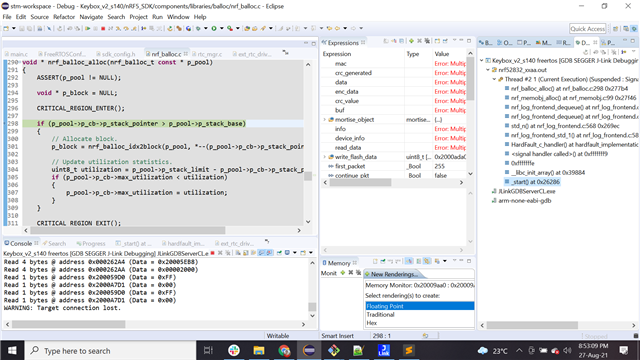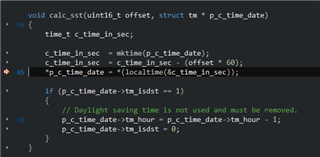Hi,
I am using nrf52832 custom board and sdk17.2.0.
My application is a Freertos application. I see that my application is going to hardfault from _start without entering into the main() function.
Attached sdk_config.h , FreeRTOSConfig.h and the screenshot of the hardfault for reference.
Can someone please help me to resolve the issue?





